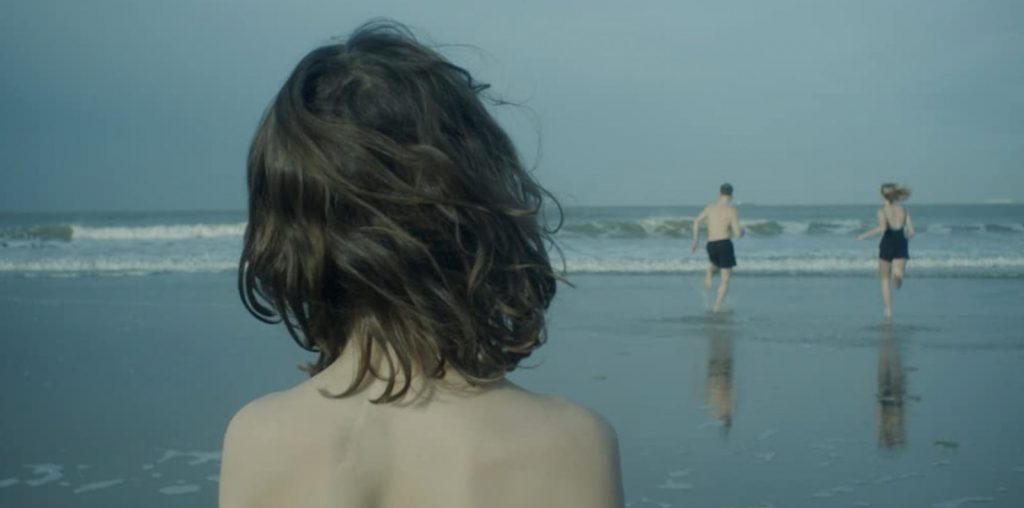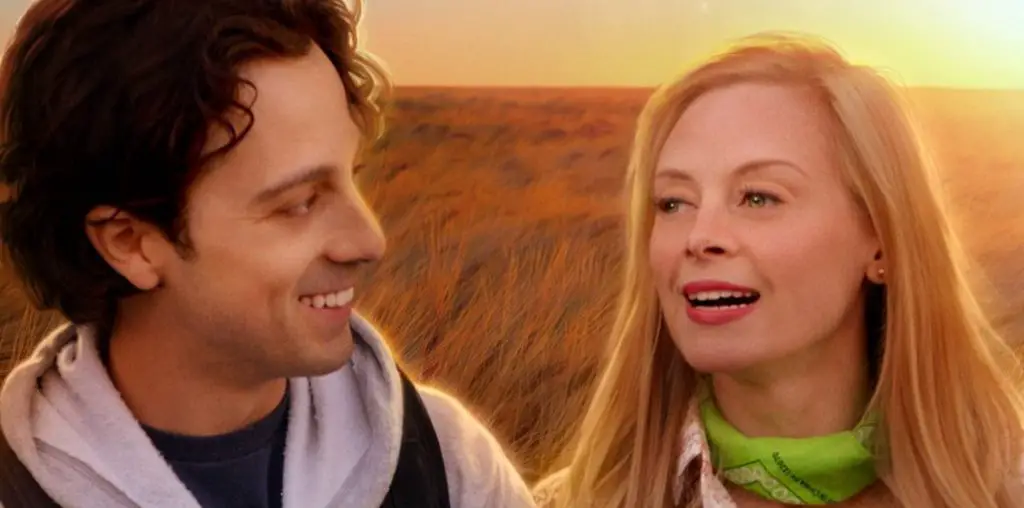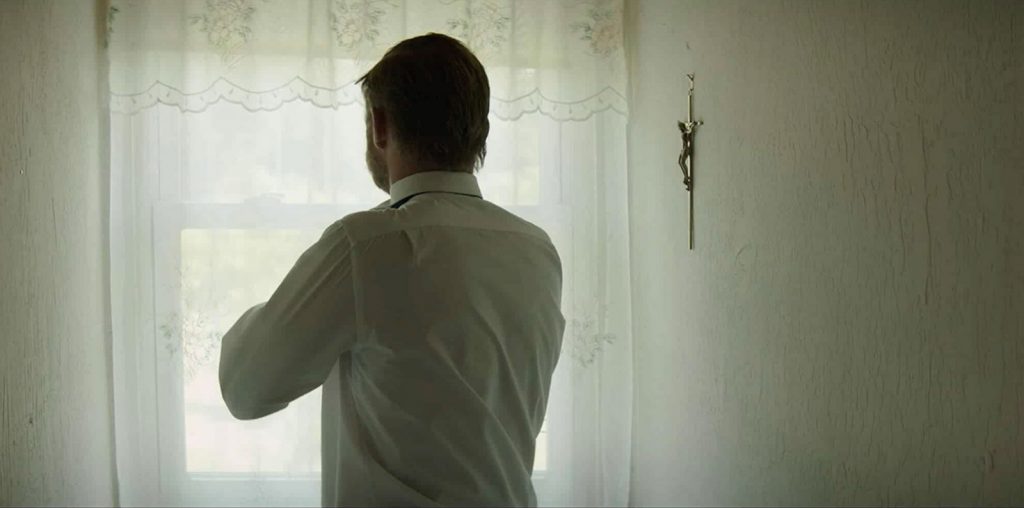
Daniela De Carlo’s loquacious drama The Blackout takes place almost entirely within the confines of a New York City apartment, as Hurricane Sandy wreaks havoc upon the city. Centered around a group of disparate individuals revealing their deepest inhibitions, the film is perceptive and quite moving. It’s also a slog to sit through, as drippy as the candles that provide its only source of light.
It’s Halloween. The storm hasn’t descended upon New York yet. Zoey (Leah Henoch), sporting smeared make-up and a frazzled pink wig, meets Enzo (Alexander Chard) and Paolo (Avi Rothman) in a café and promptly invites them to her Sandy-themed party, a “vintage Halloween soiree.” She lives with her roommates Liza (Hillary Anne Matthews) and Jen (Tess Paras) in a spacious apartment, which they are about to lose, all because of Zoey.
A group of friends and strangers arrives, along with the storm. The ensuing blackout leaves them stranded together. Candles lit, they ceremoniously bid adieu to their phones. “You’ve allowed me to disengage from the people I love most in this world,” a character indicts her cell. Then the group proceeds to engage in a prolonged verbal exchange, starting with role-play therapy sessions between the trio of roommates that quickly turns ugly. “You are the one causing this!” Jen screams at Zoey, referring to their inevitable eviction. “You are the hurricane!”
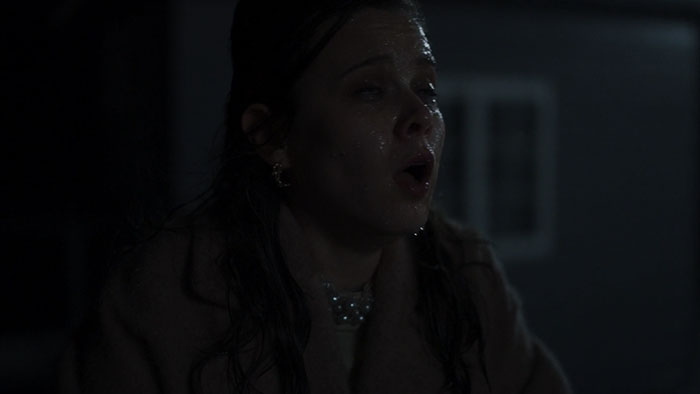
“…role-play therapy sessions between the trio of roommates that quickly turns ugly.”
A circle of trust is then formed, with folks confiding their deepest traumas and repressed love to each other. More people come and join, including the elderly couple from downstairs. Chanting, an admittedly riveting bit of performance art, and a childbirth – the movie’s apotheosis – ensue.
De Carlo brings forth reliable performances from the cast and has a keen ear for dialogue. She’s worked on multiple Hollywood films before, and the experience shows. A natural ebb and flow reveals a savvy observer of the human condition. At its heart, The Blackout is a minimalist treatise on how it takes a cataclysmic event for humanity to surface, for different generations to come together, for folks to drop their phones and communicate. It’s about how our insecurities come out in tight environments, spurred by other people’s intimate disclosures.
The Blackout does get bogged down in sap. It doesn’t shy away from twangy music or heart-on-your-sleeve sentiments. Everyone sitting around, confessing sh*t starts to feel like you’re attending an AA meeting after a while. The truths may be profound and the revelations relatable, but cinema is a visual medium first and foremost, and De Carlo’s underexposed feature often feels like a visualized podcast, a confessional by people whom we barely know. Things may seem like they’re left unresolved because there’s nothing to resolve.
There’s an unexpected sneeze that comes halfway through the movie that eases the nonstop emotional assault. The Blackout could have used more moments like this. Its final shot may just leave you feeling elated… if you don’t blackout by then, that is.
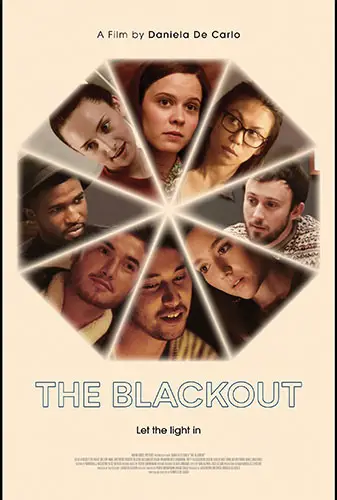
"…a natural ebb and flow reveal a savvy observer of the human condition."
